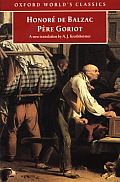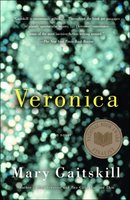Wallace, David Foster. Brief Interviews with Hideous Men. Boston: Little, Brown, 1999.
 Okay so I didn't Finish! this book recently, but years ago. Recently, I reread 75 percent of it for a class. I think DFW takes care and practice to read. This is a concept I'm taking somewhat from Zadie Smith in her latest Bookworm interview (which is pretty much required listening, especially for anyone who might find themselves reading this little blog), who says that most people (reviewers) misread DFW as some freakishly, almost fiendishly clever man who writes to confound and show off his unmatchable intellect. He is this, yes, but this is not all he is. And how few of them are able to look past the packaging (which is of course not "packaging" at all, but the right and proper form to get the ideas across fully) to get to the very important things he's trying to say and mean in his work.
Okay so I didn't Finish! this book recently, but years ago. Recently, I reread 75 percent of it for a class. I think DFW takes care and practice to read. This is a concept I'm taking somewhat from Zadie Smith in her latest Bookworm interview (which is pretty much required listening, especially for anyone who might find themselves reading this little blog), who says that most people (reviewers) misread DFW as some freakishly, almost fiendishly clever man who writes to confound and show off his unmatchable intellect. He is this, yes, but this is not all he is. And how few of them are able to look past the packaging (which is of course not "packaging" at all, but the right and proper form to get the ideas across fully) to get to the very important things he's trying to say and mean in his work.Here, by way of illustration, is an excerpt right from the middle of this story collection—which isn't his best, I don't think, despite being his most famous (the bro-y type who plays Jim on the U.S. Office has adapted the book to the silver screen, and it's coming out later this year), mostly because he spends a bit too much time refuting and destroying traditional notions of short-story form so that he can figure out how to rework the story to fit his personal interests*—from a piece called "Octet", which comprises a set of short Pop Quizzes:
In other words what you could do is you could now construct an additional Pop Quiz ... in which you try your naked best to describe ... your own feeling that the surviving semiworkable pieces all seem to be trying to demonstrate some sort of weird ambient sameness in different kinds of relationships, some nameless but inescapable 'price' that all human beings are faced with having to pay at some point if they ever want truly 'to be with' another person instead of just using that person somehow, ... a weird and nameless but apparently unavoidable 'price' that can actually sometimes equal death itself, or at least usually equals your giving up something ... whose loss will feel, in a true and urgent way, like a kind of death, and to say that the fact that there could be (you feel) such an overwhelming and elemental sameness to such totally different situations ... seems to you urgent, truly urgent, something almost worth shimmying up chimneys and shouting from roofs about. (131-133)You can go ahead and dismiss this as po-mo posturing, except that by this point in the piece DFW has long since beaten you to the punch, and has also already gone a step further to explain to you why traditional po-mo "look at me looking at you looking at me" shenanigans are always false and self-serving, and that he's trying really sincerely to write beyond this, and actually "connect" or (in his parlance) "be with" his reader in ways that are so urgent he has to risk so much, in this case its the integrity of his writing itself. "Octet" must break down if DFW ever wants to connect with his reader. It's clear to me that he urgently wants to. And so it falls apart, beautifully, I think.
---
* Oblivion's probably the most important of his three story collections, but his first one, Girl with Curious Hair, remains my favorite.**
** What's a DFW post without footnotes? It's a set of pillow shams without a matching dust ruffle.






